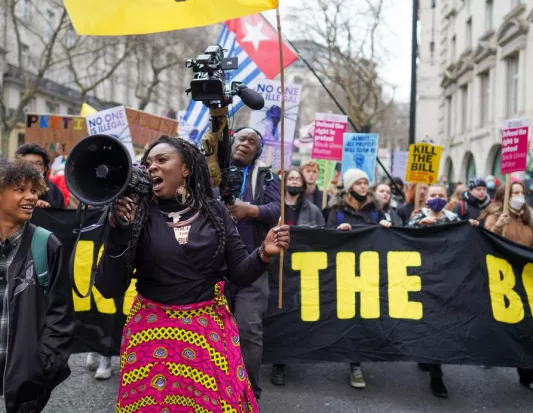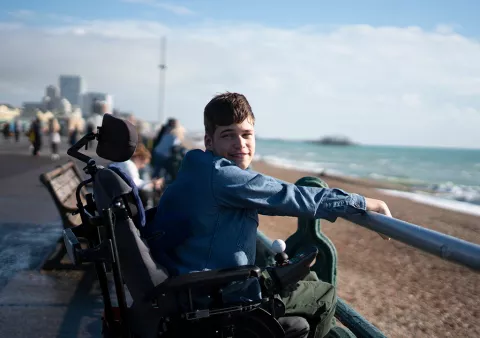We know that you might be worried about getting arrested or facing other problems when protesting. In particular we have heard concerns from disabled protesters, and others at greater risk of discrimination, for example, being LGBTQ+, from an ethnic minority background, or from another country.
Below we explain a bit more about these issues and signpost you to more information and support.
Risk of arrest
We all have the right to come together and express our views. These rights are protected by human rights laws. But the new protest laws do mean that there are now more situations where protesters may be arrested. If you want to avoid getting arrested, it helps to know your rights and understand when arrest is more likely to happen. For example, if you glue yourself to a road, or lock on to the entrance of a building, the risk of arrest is higher than taking part in a march, and moving on if and when the police tell you to.
But if you are arrested there are three key things to know:
1. You do not have to say anything after you are arrested.
The police have to take note of any comments you make when you are arrested. Even if they are nice to you, they are still trying to investigate a crime that they think you committed. Any careless statement you make whether true or not may be used against you, for example, if you ended up in a criminal trial. There is no such thing as an ‘off the record’ discussion.
2. Do not go into an interview without a legal representative.
What is said and what is not said in a police interview can have significant consequences. Don’t think, ‘I don’t need legal help because I’ve done nothing wrong’ or that getting a lawyer will delay your release. You are entitled to legal assistance with your police interview for free, so take advantage of it.
It is important to have a solicitor who has experience of representing protestors. General criminal defence firms and ‘duty solicitors’ who are available at the police station, may not be able to defend you as effectively as an expert protest solicitor.
You are allowed to ask for your own solicitor. So, it is worth taking details of a suitable firm of solicitors with you on a protest, in case you are arrested. The police will not provide details of firms. Organisations which can recommend experienced protest law solicitors firms include the Network for Police Monitoring (Netpol).
Risk of discrimination
We know that many people, including disabled people, are concerned about being treated unfairly on a protest. But there are laws to protect us from discrimination when protesting. For example, if you are disabled the police may have to take steps to reduce any disadvantage you might experience as a disabled person because of their ways of working. This means that if you are treated unfairly you can complain and take action.
For more information see:






